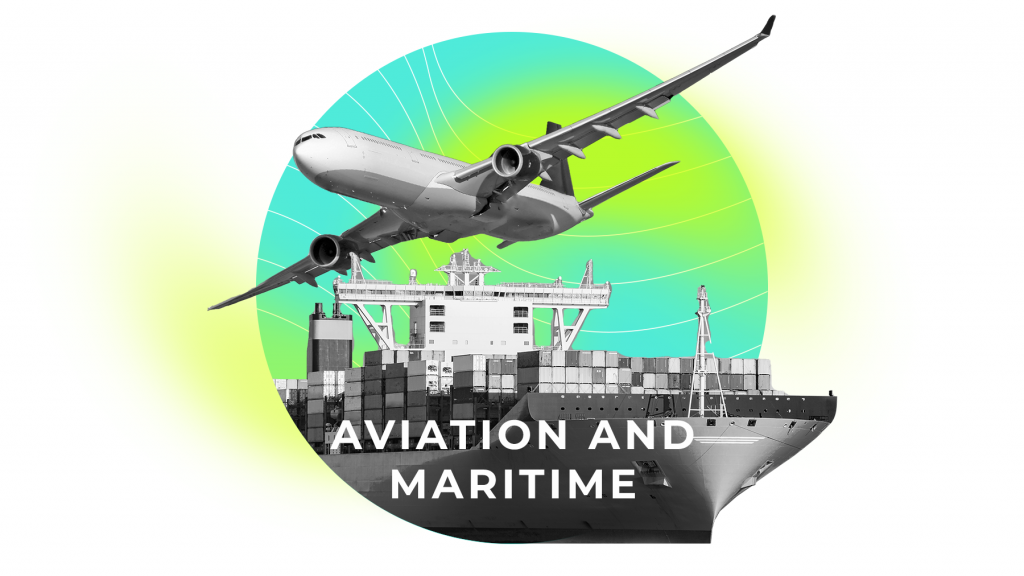As the global focus on combating climate change intensifies, the European Union has taken a significant step forward with its proposed regulations, ReFuelEU aviation and FuelEU maritime. These legislative initiatives aim to drive the adoption of sustainable fuels in the aviation and marine sectors, ultimately reducing greenhouse gas (GHG) emissions and promoting eco-responsible transport. In this article, we will delve into the critical elements of these proposals, their benefits, and the recent progress made in their development.
The Need for Regulations
Aviation and maritime transport account for substantial portions of the EU’s transport emissions. As of 2018, aviation contributes 14.4% of EU transport emissions, while maritime emissions account for 13.5%. Given the magnitude of these figures, it becomes imperative to implement measures that effectively address the environmental impact of these sectors.
ReFuelEU Aviation: Transforming Air Transport
ReFuelEU Aviation is a groundbreaking regulation that seeks to significantly reduce the aviation sector’s environmental footprint and facilitate the achievement of the EU’s climate targets. The proposal outlines several vital requirements and goals:
– Gradual Increase in Sustainable Fuel Supply: Fuel suppliers at EU airports must progressively augment the share of sustainable aviation fuels they distribute. The minimum percentage of supply is as follows:
-2025: 2%
– 2030: 6%
– 2035: 20%
– 2040: 34%
– 2045: 42%
– 2050: 70
– Sustainable Fuel Uplift by Airlines: Airlines departing from EU airports will be required to uplift sustainable aviation fuels. Moreover, they must refuel aircraft solely with the energy necessary for each flight, avoiding unnecessary weight caused by tinkering practices.
– Infrastructure Support: EU airports will play a vital role by ensuring the necessary infrastructure for delivering, storing, and refueling sustainable aviation fuels. This commitment is crucial to enable the widespread use of these fuels.
– Union Labelling System: An environmental performance labeling system will be established to inform consumers about aircraft operators’ use of sustainable aviation fuels. This labeling scheme aims to encourage informed choices and promote greener flights.
FuelEU Maritime: Propelling Maritime Sustainability
The FuelEU Maritime regulation is designed to address the GHG emissions from the maritime sector, focusing on vessels above 5,000 gross tonnes calling at European ports. Key elements of this proposal include:
– Reduction in Greenhouse Gas Intensity: Vessels falling under the regulation will be required to progressively reduce the greenhouse gas intensity of the energy used on board. The reduction targets are as follows:
– 2025: 2%
– 2030: 6%
– 2035: 14.5%
– 2040: 31%
– 2045: 62%
– 2050: 80%
– Onshore Power Supply: Unless zero-emission technologies are utilized, vessels above 5,000 gross tonnes must connect to an onshore power supply for their electrical needs while mooring at the quayside. This measure promotes the use of cleaner energy sources during vessel downtime.
Benefits of the Regulations
The implementation of ReFuelEU Aviation and FuelEU Maritime offers numerous advantages for both the environment and the transportation industry:
– Level Playing Field: The regulations ensure a fair and consistent approach across the aviation and maritime sectors, fostering healthy competition and encouraging all stakeholders to contribute to sustainability efforts.
– Increased Production and Uptake of Sustainable Fuels: By setting specific targets for sustainable fuel supply, the proposals




